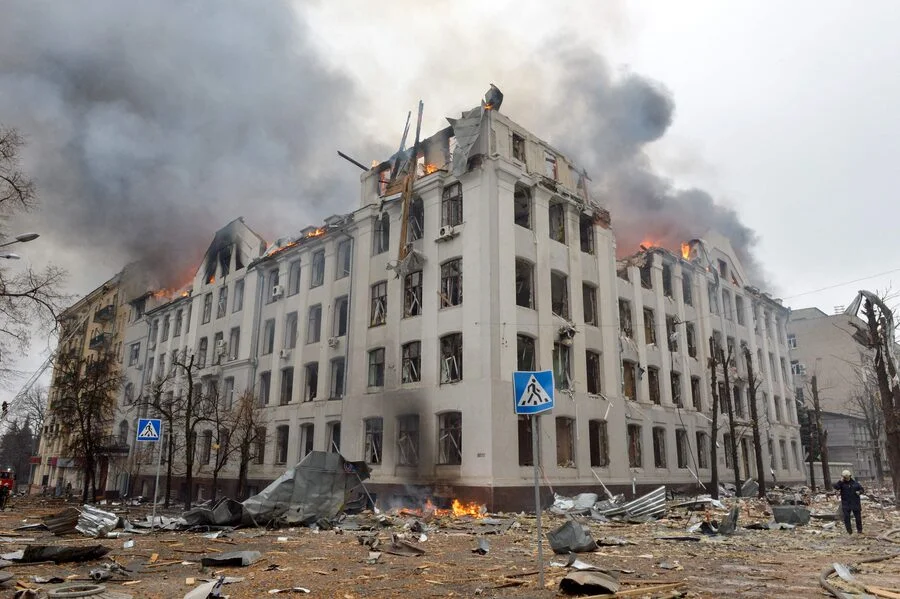On March 2, 2022, the Russian military announced it had taken full control of Kherson, a strategic southern Ukrainian port city, marking a significant advance in its invasion. Russian armed forces spokesman Igor Konashenkov stated, “Russian army units have taken full control of the regional capital of Kherson,” adding that civilian infrastructure and public transport remained operational. This claim, made on the seventh day of Russia’s offensive, has not been independently verified and comes as Russian forces intensify efforts to encircle Kyiv, Ukraine’s capital.
Global Condemnation and U.S. Response
The seizure of Kherson coincides with heightened international backlash. During his first State of the Union address on March 1, 2022, U.S. President Joe Biden condemned Russian President Vladimir Putin, declaring, “He thought he could roll into Ukraine and the world would roll over. Instead, he met a wall of strength he never imagined.” Biden announced a U.S. ban on Russian aircraft from American airspace, effective March 2, aligning with similar measures by Western allies. This move aims to isolate Russia economically and politically in response to its aggression.
Ukraine’s Defiance and Humanitarian Toll
Ukrainian President Volodymyr Zelenskyy reported nearly 6,000 Russian casualties since the invasion began, though these figures await independent confirmation. He condemned a Russian strike on Babi Yar, a Kyiv site tied to a World War II Jewish massacre, stating, “They don’t know a thing about Kyiv, about our history. But they all have orders to erase our country.” In Kharkiv, Ukraine’s second-largest city, Russian airborne troops reportedly attacked a military medical center, engaging local forces. Kyiv residents continue to seek shelter in metro stations, defying Putin’s warnings to evacuate.
Economic Ripples and Energy Concerns
The invasion’s global impact is evident in the energy sector, with Brent crude oil prices surging to $113 per barrel on March 2, 2022, the highest since June 2014. This spike persisted despite the International Energy Agency’s decision to release 60 million barrels from emergency stockpiles, including 30 million from U.S. reserves, as announced by Biden to mitigate rising fuel costs. “I want you to know that we are going to be okay,” Biden reassured, emphasizing efforts to shield Americans from economic fallout.
Ongoing Conflict and Ukrainian Resilience
The fall of Kherson, if confirmed, represents a major setback for Ukraine, as it was the first regional capital claimed by Russia in the invasion. Yet, Ukraine’s resistance remains fierce, with Zelenskyy and civilians demonstrating unwavering resolve. The conflict, now drawing international sanctions and cultural protests, continues to reshape global dynamics, with Ukraine’s fight for sovereignty at its core.






